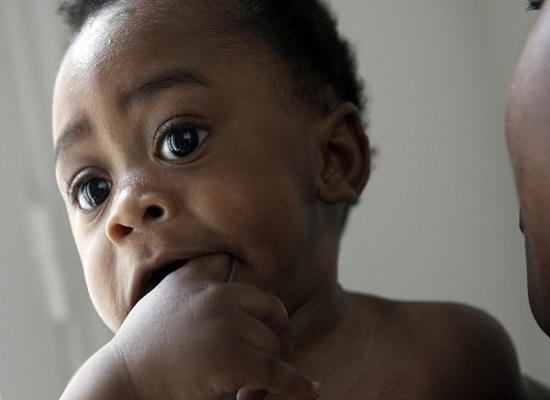

During devotion the other day, I found myself explaining to my girls that we will all grow old, and someday, die.
On hearing this, one of my daughters broke down in tears, which led me to explain to them that “we’re not meant to live forever and that death is only a natural process.
I was thinking that some parents may have found themselves in this position too. Hence, this article.
So, if you are looking for how to talk to your children about death in a way that it’ll make sense to them? This article is just for you.
1. Sort Out Your Own Feelings First
Before you talk to your child, you’ll need to first process and take care of your own emotions.
If your feelings on the subject are still all over the place, you may end up making everything confusing for the child.
If you have to, talk to others who can help you process your own feelings to avoid overwhelming your child.
Because if you feel uncomfortable talking about death, your child will notice this, and it will taint your intentions.
Instead, aim to approach the topic with a clear and open mind.
It’s okay to show some sadness and emotions, but if your feelings about death are too raw, your child may be more upset/confused by your feelings than the death itself.
2. Pick A Time When Your Child Is Likely To Talk
You may choose to talk to your child in the car, during/after morning devotion, before dinner, or before bedtime when he/she’s most receptive to slowing down and having a conversation.
Bring up the topic in a direct and straightforward manner, for example, opening with, “I want to talk to you about Grandpa.”
Ensure you have your own feelings under control when you bring up the topic.
Don’t bring it up at a time when you’re feeling stressed, upset, or tired; and let your child know that you’re interested in her feelings and her thoughts.
3. Avoid Euphemisms
Children interpret words with their literal meanings.
And when you process the many common euphemisms for death as a child, you’ll understand just how confusing and frightening they can be.
For example, don’t say the dead have “gone to sleep”, “called to glory” “gone to a better place,” or “passed away” as this will likely result in confusion for your child.
It can help some children to know that those euphemisms are words that other people might use to mean death, but don’t substitute them for the word death itself when having the conversation with them.
You can explain with other concrete examples of death: the death of a flower, a plant, or a pet.
Use these examples to show your child the consistent facts of a death: inevitable, natural, and final.
4. Take Cognizance Of Your Child’s Developmental Level
Primarily, infants and toddlers won’t be able to understand a conversation but will react to their parent’s emotional state.
From age 3, you can talk to your child using clear, concrete language.
Your school-aged child/ren should receive simple, honest explanations about how the death occurred.
Teens and older children may be able to comprehend death as well as an adult but may have difficulty expressing their feelings about it.
Bear in mind that children and young people grieve in a more sporadic manner than adults do.
You may find their feelings veering abruptly from sadness to excitement.
Don’t forget that you are the best interpreter of your child’s communication.
You know better than anyone else whether he likes to communicate through his drawings, his play, or by having conversations.
He/she may be processing his feelings through his play, so be watchful and alert for any signs that he’s trying to communicate in unexpected ways.
5. Let Your Child Know That Death Is Inevitable
If your child is of school-age, he/she may be able to understand that from time to time (old) people die, but he/she might not know that it’s inevitable.
It will help your child if you’re able to provide simple and honest explanations for death.
Make sure your child knows that the death does not occur because of something they did or didn’t do.
Talking to your child about the cause of the death might be helpful.
The more your child knows about the reason for the death, the less likely he/she will be to blame themselves.
If your child is too young to understand the exact cause of death, you can explain it using simpler terms he/she might understand.
For example, you could explain that the heart, the organ that pumps blood in the body, wasn’t working anymore, and couldn’t get fixed.
6. Explain That Death Is Permanent
Whether it’s the death of a person or a pet, your child won’t see the dead living again. What death means primarily is that you won’t see the person (or puppy) again. It also means that the dead won’t experience any more sadness, hurt, or pain, and you can reassure your child of this.
Some religious explanations about the afterlife can be confusing for children to sort through, so you can save that conversation for a later time.
Also Read: 8 Ways To Save, Invest For Your Child’s Education
It’s likely that your child may need reminders that he/she won’t see the dead again, so expect questions such as “Will __ be there?” or when the dead will be coming back.
7. Reassure Your Child
At the end of the day, not everyone who gets sick or gets in an accident will die.
Remind him/her of a time they were sick and got better.
Enlist all the people who he loves who are not sick so that he’s comforted that he won’t be left alone.
This can be a good opportunity to remind him how many people love and care for him.
Don’t overthink if your child becomes clingy or needy at this time.
If your child is older, he may distance himself from you instead.
Don’t get surprised either, but continue to hold the same standards of behaviour you expected prior to the conversation about death.
Encourage your children to express how they feel, no matter what age they are.
Get more resources on parenting here.




